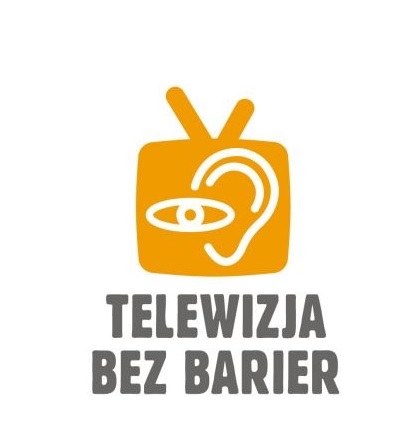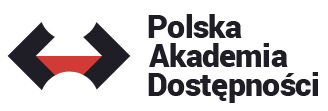Television without barriers

In June 2010 based on the initiative of Widzialni Foundation, a partnership ”Television without Barriers” was established.
It consists of Telewizja Polska S.A., Widzialni Foundation, Polish Association of the Deaf and Association for the Deaf and Blind Assistance. The purpose of the partnership is to increase the accessibility of program offer Telewizja Polska for persons endangered to so called digital exclusion, with particular consideration of disabled persons.
In Poland, there are a few million people endangered to digital exclusion, i.e. exclusion from the social life, resulting from lack of access to modern forms of communication and transfer of information - Internet, television, telephony, etc. The group of persons endangered to digital exclusion covers disabled persons (in particular with sight and hearing disabilities), elderly, poor, living in not wealthy parts of Poland, with limited vocabulary. The established partnership is to equalize the changes of the mentioned social groups to participate in the IT society.
The purpose of the Partnership is not only significant improvement of accessibility to programs but also development of supporting technologies that allow for using them by as large group of receivers as possible. Within the scope of the cooperation, research works concerning development of supporting technologies will also be performed - subtitles for deaf persons, audio-description for blind, visually impaired as well as deaf and blind persons as well as sign language translations.
In 2004, public media has been recognized by the Parliamentary Assembly of the Council of Europe to be one of the most important social and political institutions, created by European Democracies in the 20th century. On 4 September 2003, the European Parliament adopted a resolution concerning Television without Barriers, which obligates the member states to create national plans approaching the television to disabled persons.
The best televisions in the world set an example. Leader among the European TVs is BBC. Over 95% programs of BBC One have subtitles, 90% programs of BBC Three, BBC Four, CBBC, Cbeebies, BBC News 24. In Great Britain, subtitles in the public television are guaranteed by the the Communications Act 2003, which states that the broadcaster must provide subtitles to 90% programs until 2010. New digital channels must have subtitles in 60% of programs at the beginning and 80% after 10 years. In France, it is determined that channels with annual viewship exceeding 2.5% must adapt all their programs to the needs of deaf persons by 2010. In the Netherlands, 75% of programs on public channels have subtitles, and until 2010, all programs, both on public and private TV must have subtitles. In Spain 25-50% of programs have subtitles. In Ireland, between 18:30 - 23:30, 90% of programs have subtitles. In Norway - 50%, Sweden - 50% of new programs and in Denmark - 23% have subtitles.
Accessibility of TV transmission for persons endangered to digital exclusion, first and foremost disabled persons, is one the the public television mission targets, especially in the context of the planned transition of TVP S.A. to digital broadcasting, which provides more opportunities within the scope of using supporting technologies. Equalizing the chances in the access to information for groups endangered to exclusion is also a statutory goal of the remaining Partners - Widzialni Foundation, Polish Association of the Deaf and Association for the Deaf and Blind Aid.













